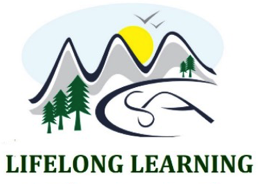
Date/Time
Date(s) - Mon Mar 11 2024
2:00 pm - 3:00 pm
Notes:
Explore the intricate relationships between whale health, environmental dynamics and the resilience of fishing communities. During this presentation, we will dive into the interconnected web of marine ecosystems and how environmental variations influence the dynamics and health status of wildlife and human communities. First, we will take a cold trip to the Arctic to explore the increasing challenges cetaceans face and how novel methods for assessing their health are under development. This research will show you how skin microbes have emerged as a promising method of detecting health issues, which can help guide conservation efforts for free-ranging cetaceans. We will discuss the potential role that environmental changes and whale-human interactions can play in cetaceans’ conservation. Then, we will travel to the warm coast of Mexico to hear from fishers’ voices about how climate-related impacts on the ocean pose a growing risk to their livelihoods, food security, and culture. Fishers’ local knowledge of topics, including sociocultural structures and natural resource management, have proven to be extensive and valuable in assessing changes in marine ecosystems. Thus, our research delves into the complex outcomes of climate-related impacts on the marine food systems, including physical and emotional responses from nutritional stressors to cultural and identity loss.
Together, these projects shed light on the intricate and complex relationships that exist between humans, animals, and the environment. The findings of these studies have underscored the need to comprehend better the ways in which these three factors interact with one another and how they impact each other. By investigating these relationships, researchers have gained greater insight into the ways in which human actions can affect wildlife populations and the environment as a whole. Ultimately, these research projects will remind us of the interconnectedness of all living things and the importance of taking a holistic, systems-based approach to understanding our world.
About Marina and Carlos:
Marina (she/her) is a PhD candidate in Public Health – Epidemiology at the University of Alberta. Her research focuses on the impacts of environmental variations on the health status of different populations. She is particularly interested in exploring the health-disease dynamics in populations inequitably impacted by climate change from a One Health perspective. She is an International Development Research Centre Doctoral Awardee and has assisted in back ground research for a variety of national and international climate reports. She currently works in partnership with fishing communities in Mexico to understand the direct and indirect impacts of climate change on the fisher’s health and wellbeing. Se is a yoga and nature enthusiast, constantly seeking to expand her knowledge and experience.
Carlos is a veterinarian, researcher, and data scientist known for his expertise in marine mammal studies and infectious diseases. With a PhD in Biological Sciences from Universidad Autonoma de Queretaro, Mexico, Carlos has dedicated his career to understanding the impact of climate change on wildlife health, mainly focusing on marine mammals. His research spans from characterizing the respiratory tract microbiome of blue whales in the Gulf of California to analyzing the microbiome of various marine species, including: California Sea Lions, Northern Elephant Seals, Spermwhale, Bowhead whales and Orcas. Carlos is keenly interested in metagenomics and utilizes data visualization techniques to communicate research findings effectively. Outside of his professional pursuits, Carlos enjoys photography, engaging in substantive discussions, and exploring new opportunities for learning and growth.
